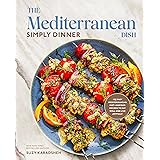The quest for an eating pattern that promotes both longevity and robust health often leads to a multitude of dietary philosophies, many of which can seem overly restrictive or complex. Yet, as Lisa Valente, a registered dietitian with Healthline, elaborates in the accompanying video, the Mediterranean diet stands out as a remarkably accessible and scientifically validated approach to well-being. This dietary blueprint, celebrated globally, offers a compelling solution to common dietary dilemmas by focusing on wholesome, traditional foods and sustainable lifestyle practices. Understanding its core tenets provides a clear path to embracing a healthier way of eating.
Deconstructing the Mediterranean Diet: A Timeless Nutritional Paradigm
The Mediterranean diet is more than just a list of foods; it represents a cultural approach to eating that has been observed for centuries in regions bordering the Mediterranean Sea. This pattern is not about strict rules or calorie counting but rather emphasizes a holistic embrace of nutrient-dense foods and mindful consumption. Research consistently demonstrates that populations adhering to these principles exhibit significantly lower incidences of chronic non-communicable diseases, a stark contrast to outcomes associated with more Westernized dietary habits. The sustained appeal of the Mediterranean diet is attributable to its comprehensive benefits, which extend beyond mere physical health to encompass mental and social well-being.
1. Foundation in Whole, Unprocessed Foods: At its core, this dietary pattern prioritizes ingredients that are minimally processed. This includes a bounty of fresh fruits and vegetables, which supply essential vitamins, minerals, and a vast array of phytochemicals known for their antioxidant and anti-inflammatory properties. Whole grains, legumes, nuts, and seeds also form a significant portion of daily intake, providing complex carbohydrates, fiber, and healthy fats that contribute to satiety and sustained energy levels.
2. Emphasis on Healthy Fats: Extra virgin olive oil serves as the principal source of dietary fat in the Mediterranean diet. Rich in monounsaturated fatty acids, particularly oleic acid, olive oil is instrumental in modulating cholesterol levels and reducing cardiovascular risk. Beyond olive oil, nuts and seeds contribute polyunsaturated fats, including omega-3 fatty acids, which are crucial for brain health and inflammation control. These lipid sources are not merely caloric; they are integral to the diet’s protective effects.
The Health Imperatives Driving Mediterranean Adherence
The scientific literature supporting the Mediterranean diet’s efficacy is extensive, showcasing its profound impact on several critical health parameters. Adopting this eating pattern can initiate a cascade of physiological benefits, improving various aspects of metabolic and cardiovascular function. The synergistic effects of its components contribute to its widespread recognition as a gold standard for dietary intervention.
Firstly, from a metabolic standpoint, the Mediterranean diet is a potent tool for weight management and metabolic syndrome amelioration. Its high fiber content, derived from fruits, vegetables, and whole grains, promotes satiety, which naturally aids in caloric regulation. This emphasis on complex carbohydrates and healthy fats helps stabilize blood glucose levels, thereby reducing insulin spikes and mitigating the risk of type 2 diabetes. The sustained energy release prevents the acute hunger pangs often associated with highly processed, sugary diets.
Secondly, the diet is renowned for its significant contributions to cardiovascular health. The abundance of monounsaturated fats from olive oil and omega-3s from fatty fish, combined with the antioxidant power of plant foods, collectively works to lower LDL cholesterol, reduce blood pressure, and improve endothelial function. This comprehensive approach effectively minimizes the risk of atherosclerotic plaque formation, consequently reducing the incidence of myocardial infarction and stroke. These protective mechanisms are fundamental to the diet’s lauded benefits for heart health.
Thirdly, the neuroprotective benefits of this eating pattern are increasingly being recognized. A diet rich in antioxidants, healthy fats, and specific micronutrients has been linked to enhanced cognitive function and a reduced risk of neurodegenerative diseases such as Alzheimer’s. The consistent supply of anti-inflammatory compounds and essential fatty acids supports neuronal integrity and synaptic plasticity, crucial for memory retention and overall brain health. This focus on brain-boosting nutrients underscores its role in promoting cognitive longevity.
Fourthly, the inherent anti-inflammatory properties of the Mediterranean diet contribute to overall systemic health. Chronic low-grade inflammation is a significant driver of numerous chronic diseases, including certain cancers and autoimmune conditions. By prioritizing antioxidant-rich plant foods and healthy fats while limiting pro-inflammatory processed items, the Mediterranean diet can significantly modulate the body’s inflammatory response. This pervasive anti-inflammatory effect is a cornerstone of its broad spectrum of health benefits.
Navigating Food Choices and Culinary Adaptations
Embracing the Mediterranean diet involves a shift in culinary focus rather than rigid restriction. The framework encourages an abundant intake of particular food groups, a moderate consumption of others, and a limited approach to those that offer minimal nutritional value. This balanced perspective provides both guidance and flexibility, making it an adaptable plan for diverse palates.
For primary consumption, the focus remains on plant-forward options. This encompasses a broad spectrum of fruits (berries, citrus, apples), vegetables (leafy greens, cruciferous varieties, root vegetables), and legumes (lentils, chickpeas, beans). Whole grains, such as oats, quinoa, brown rice, and whole wheat bread, provide essential fiber and micronutrients. Nuts (almonds, walnuts) and seeds (chia, flax) are excellent sources of healthy fats and protein, often enjoyed as snacks or additions to meals. Seafood, particularly fatty fish rich in omega-3s like salmon and sardines, is recommended several times a week, serving as a lean protein source. Extra virgin olive oil is the preferred cooking and dressing fat.
Moderate consumption applies to poultry, eggs, and dairy products like Greek yogurt and cheese. These items are integrated into the diet without becoming its centerpiece, often complementing plant-based dishes. Red wine, when consumed, is done so in strict moderation and typically alongside meals, emphasizing social connection rather than its perceived health benefits. It is crucial to note that initiating alcohol consumption is not advised for those who do not already drink, as any amount of alcohol carries health risks.
Foods to be limited or avoided include ultra-processed items, those with excessive added sugars, refined grains, and sweetened beverages. These components, prevalent in many modern diets, contribute significantly to caloric surplus without providing substantial nutritional density. By minimizing their intake, adherence to the Mediterranean diet naturally reduces exposure to ingredients that can undermine metabolic health.
Beyond the Plate: Lifestyle Integration
The efficacy of the Mediterranean diet is not solely attributed to its nutritional composition; it is profoundly intertwined with lifestyle factors that characterize the cultures from which it originates. These elements extend the diet’s benefits beyond mere biochemical interactions to encompass psychological and social well-being.
One pivotal aspect is the emphasis on social connection and mindful eating. Meals in Mediterranean cultures are often communal events, shared with family and friends, fostering a sense of belonging and reducing stress. This practice encourages slower eating, allowing for better digestion and recognition of satiety cues, which can prevent overeating. The act of sharing meals, free from digital distractions, elevates eating from a mere physiological necessity to a cherished social ritual.
Furthermore, the generous use of herbs and spices for flavoring represents another key differentiator. Instead of relying heavily on salt, sugar, or unhealthy fats, Mediterranean cuisine leverages the potent flavors and medicinal properties of herbs like oregano, basil, thyme, rosemary, and garlic. These ingredients are not only culinarily vibrant but are also rich in antioxidants and anti-inflammatory compounds, further bolstering the diet’s health-protective effects without compromising taste. This approach illustrates that healthy eating does not equate to blandness; rather, it can be a deeply enjoyable sensory experience.
The inherent flexibility of the Mediterranean diet is also a significant advantage. Unlike many prescriptive dietary plans, it does not mandate calorie or macronutrient tracking, nor does it eliminate entire food groups. Instead, it offers a broad framework that allows for individual preferences and cultural adaptations. This adaptability fosters long-term adherence, making it a sustainable lifestyle rather than a temporary diet. Whether one enjoys a lentil curry with vegetables over brown rice or shrimp tacos with peppers and avocado, the core principles of the Mediterranean eating pattern can be successfully applied to a myriad of global cuisines.
Addressing Perceived Challenges and Broader Applicability
While the Mediterranean diet is lauded for its benefits, some individuals may initially perceive challenges, primarily due to its lack of rigid structure. This flexibility, paradoxically, can be daunting for those accustomed to explicit “yes” and “no” lists. However, this characteristic also allows for greater autonomy and the ability to tailor the diet to personal tastes and availability of local ingredients, ultimately enhancing long-term sustainability.
Another point sometimes raised pertains to the perceived lack of cultural diversity in its foundational research, often centering on traditional European Mediterranean cuisines. Yet, the core tenets—emphasizing plant-based foods, healthy fats, whole grains, and lean proteins while limiting processed items—are universal nutritional truths applicable across virtually all culinary traditions. Adapting the principles of the Mediterranean diet means integrating its core philosophy with culturally relevant and accessible foods. For instance, replacing specific Mediterranean vegetables with local produce or adapting preparation methods to suit traditional cooking styles maintains the dietary pattern’s health benefits while embracing diverse flavors.
The Mediterranean diet offers a robust and adaptable framework for health optimization, moving beyond reductionist nutritional advice to embrace a comprehensive, lifestyle-oriented approach. Its emphasis on whole foods, healthy fats, and social connection over meals provides a blueprint for a healthier, more fulfilling existence, consistent with scientific evidence and deeply satisfying from a culinary perspective. This enduring eating pattern continues to serve as a beacon for sustainable nutrition.











